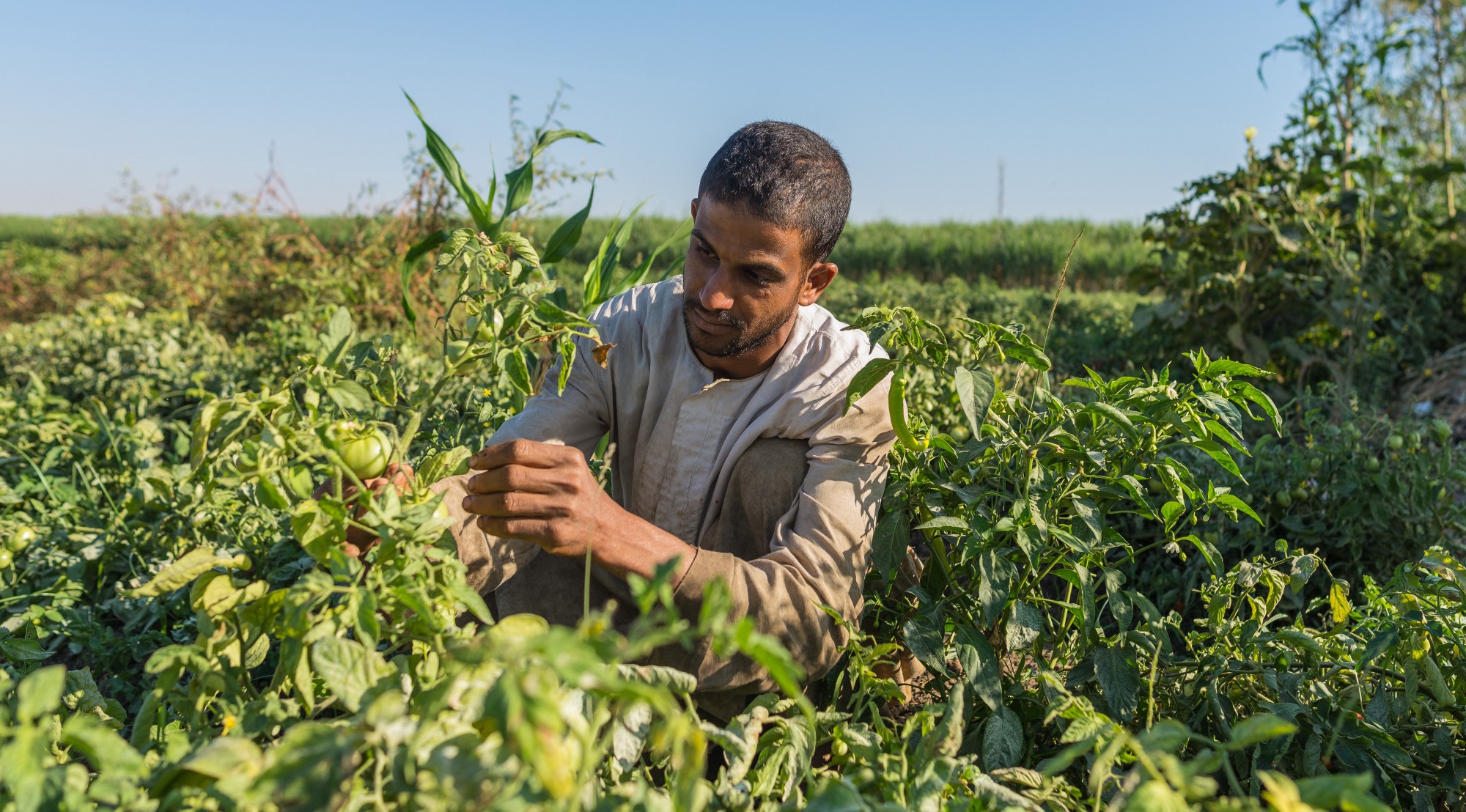For centuries, in the lush green fields of Egypt’s fertile Delta Valley, Egyptian farmers have always carried a deep love for the land – growing popular crops such as wheat and cotton, and putting Egypt on the map of global agriculture.
Yet, today, Egypt is on the map as of one of the most water-scarce regions in the world, facing a multitude of challenges regarding water and food security, which are exacerbated by rapid population growth and climate change. It has been suggested that, in 2025, the UN predicts that Egypt will be approaching a state of “absolute water crisis” by 2025 and that the nation is already below the United Nations’ water poverty threshold.
While environmental regulations often do not gain enough attention or coverage as other climate issues, they play an important role in ensuring that all groups in society, whether a farmer or a factory owner, abide by the same standards and practices.
Since 1994, these regulations have been developed and implemented by the Environment Affairs Agency (EEAA), and have introduced regulations overtime to reflect the changing context. For instance, in 2014, the Egyptian government published the Renewable Energy Law (Decree Law 203/2014), which helped encourage the private sector to produce electricity from renewable energy sources, and led to more private companies to appear in the market, such as KarmSolar.
In the matrix of population growth and rising local clean water demand, there is another huge danger: pollution. There are several sources of pollution that can often go unnoticed and disregarded in environmental regulations, such as industrial wastewater discharge, agricultural water drainage, and other toxic chemicals. Environmental regulations can help in regulating wastewater reuse, as the reuse of treated wastewater for agricultural or even potable uses provides an alternative source of water.
Noura Abdo is an environmental engineer and a master’s candidate in water engineering at Alexandria University, as well as founder and environmental expert at “Our Climate” – an Egyptian social enterprise for environmental solutions in wastewater and fresh water treatment through clean energy.
More specifically, her research is focused on the interrelation between climate change, water and food security, as well as the vulnerability of communities living in rural or impoverished areas, as they are more likely to be disproportionately affected and face more challenges in water pollution. Agriculture, which is the largest employer in rural areas, plays a major role in water pollution, as farms discharge agrochemicals, sediments, and saline drainage into water bodies.
Solving this issue is not just a matter of using new water technologies, but also about going deeper into the process of implementation: connecting stakeholders and introducing new regulations.
“Connecting all stakeholders in society is highly important. First, there is the ordinary citizen or farmer that faces challenges in water pollution and needs an environmental solution. To provide this solution, we need to connect them with NGOs from civil society in that specific area, as there are several different districts – from Giza to Sohag, Minya, and Qena – that have their own unique challenges in water pollution,” Abdou tells Egyptian Streets.
“Another important stakeholder is the academic and research community, which includes those who have policy ideas and solutions but do not know how to implement them. They are very important because they have the ability to conduct studies and experiments on new technologies to assess their true impact, and also to understand each district’s own unique challenges,” she adds.
The next crucial step is to ensure that implementation under Egyptian code abides by international guidelines and, at the same time, also addresses the Egyptian context.
“I’ve always been passionate about helping the villages and areas that are most impoverished, and how regulations in the Egyptian code are concerned with environmental issues,” Abdou says.
Abdou’s research is focused on a comparative analysis between Egyptian code, the Environmental Protection Agency (EPA) and World Health Organization (WHO) guidelines on wastewater reuse in agriculture, and the restrictions in implementing this process.
“There are a lot of things not being covered and it’s not being taken into full consideration in the Egyptian code, and this is the gap that needs to be worked on further and to focus more specifically on the communities that are affected by water pollution, as there are risks with regards to health and water scarcity. Climate change can affect water shortage in the future, especially as population increases and contamination increases, which is why it is important to strengthen the risk management system through stronger legal restrictions,” Abdou notes.
According to the Food Agriculture Organization (FAO)’s report, climate change disproportionately affects food-insecure regions, as well as jeopardizing crop and livestock production, such as Egypt’s sugar crops, and fruits and vegetables. Holistic approaches that take into consideration the implementation of regulations and policies, as well as the use of certain climate-smart technologies, ensure that the process is more efficient.
“Wastewater reuse has become increasingly important as a cost-efficient supply that decreases the stress on freshwater sources, provides nutrient-rich water for irrigation, and it can be used for recycling which is very important environmentally,” Abdou adds.
“Wastewater reuse has to follow certain regulations and a sequence of treatment procedures to reduce concentration of pollutants in it, which Egyptian code does not take into consideration. There are other criteria for polluted water other than pathogens, which the Egyptian code focuses on. It must also take into consideration the acidity of water, chemicals and other other industrial materials.”
The Egyptian code also faces challenges in assessing the quality of water during irrigation and soil salinity, Abdou adds, despite the fact that soil salinity affects food security as it is concerned with groundwater. “The Egyptian code does not address groundwater, yet this is going to be very important in the next coming years, as groundwater is the world’s largest freshwater resource.”
Another significant gap in Egyptian code is that it does not take into consideration the geographical and cultural aspects of water pollution and water scarcity, and how to address the different aspects of water quality in each district. “We need to include the different geographical considerations in the Egyptian code, because what we often do is we split people into categories, from farmers and field workers, but we have to treat all workers equally in the law as they all face and are exposed to the same dangers, so we must protect the public health of all,” she adds.
Egypt has been upgrading its water infrastructure projects over the years, as it is planning to construct 17 water desalination plants by 2025, and recently inaugurated the world’s largest water treatment plant of Bahr al-Baqar in the northern province of Port Said.
However, to solve the climate crisis, governments alone cannot shoulder the responsibility, as collective, grassroots mobilization with all stakeholders in society (civil society and academic community), paralleled with strong regulations, is needed to ensure effective and quick implementation.
Essentially, environmental regulations also play an important role in securing environmental justice for local vulnerable communities – those that are in most danger and are at risk from environmental pollution, and cannot hold anyone accountable for any of the environmental damages.






Comments (2)
[…] لماذا اللوائح البيئية مهمة لمكافحة تغير المناخ في مصر […]
[…] لماذا اللوائح البيئية مهمة لمكافحة تغير المناخ في مصر […]